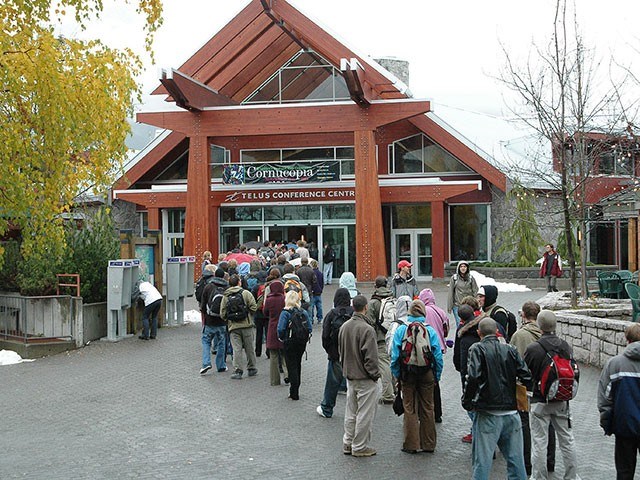As the labour shortage in Whistler continues to intensify, local businesses are scrambling to find workers. And while wages around town are going up, employers are also looking at other ways to recruit and retain employees.
“Employers are also coming up with unique and innovative ways to reward staff, such as staff appreciation events and gym memberships,” said Jodi Annett, coordinator for the Whistler Employment Resource Centre (WERC).
“There is a huge focus on recruiting and retention, and many employers who have not done that in the past are doing that now,” she said.
She added that wages have increased in the past year in all sectors of the workforce.
According to a recent study by the Whistler Housing Authority, 30 per cent of businesses in the resort municipality could not reach full staffing levels last year. Moreover, the unemployment rate currently sits at 2 per cent for permanent residents and 6 per cent for seasonal employees.
“(The labour shortage) has definitely intensified in the past two or three years. I think if you look back four of five years, you could see it coming. But the reality is that it is not a short-term issue. This looks more and more like a 20 year trend,” said Kirby Brown, director of human resources for Whistler-Blackcomb.
The labour shortage is not isolated to Whistler. A 2006 compensation survey by go2, the human resources arm of Tourism B.C., shows that tourism wages rose as much as 28 per cent in the past two years across the province.
“Everybody pretty much agrees that we are going to continue to experience challenges in these areas because of the boom in the economy in Alberta and British Columbia,” said Mayor Ken Melamed.
He added that local businesses and the Chamber of Commerce are aware of the challenge and are taking steps to address it.
“They are adjusting wages, they are improving working conditions and benefit packages for employees to try and make the employment experience here better, and therefore taking proactive steps to try and retain workers,” said Melamed.
Laura Downs, sales and marketing manager of Ziptrek Ecotours, agreed that the increase in wages is a natural development from the labour shortage.
“Obviously it is a no brainer. If everyone in B.C. is lacking employees, then companies are going to do things to try and entice them,” she said.
“For a lot of people looking for jobs, it is like ‘Here I am in Whistler, I can work anywhere, and places are willing to train me if I don’t have the experience.’ And most end up basing their choice on money,” said Downs.
She added that many companies in Whistler, including Ziptrek, are not only increasing their wages, but also offering bonuses at the end of the season or for staying a certain amount of time.
“We have over 100 staff in the summer — and a good majority of that staff are guides — so that is a lot of people to look for every year,” she said.
Whistler-Blackcomb, the municipality’s biggest employer, also uses a combination of wages and incentives to attract workers. In fact, according to Brown, the company offers large pay raises to returning employees — sometimes as much as 14 per cent — to encourage people to stay beyond a single year.
The company also offers other incentives, such as housing, ski passes, half priced food and retail discounts.
“We focus a lot on leadership development, so our managers and supervisors are treating people super well, so people are having a great time while they are here,” said Brown.
He added that Whistler-Blackcomb has a lot more room to increase wages and benefits than other businesses in Whistler.
“Because we are the biggest employer in town, I am very cognizant of the fact that if we do dramatic things with our wages, we put a lot of pressure on smaller employers in town,” said Brown.
“We don’t do anything independent of the community when we do these things,” he said.
Kerin Wilhelm, director of human resources at Westin Resort and Spa, said that she does not think simply increasing wages is necessarily the best approach to enticing staff.
“I don’t think increasing wages is the way to solve this. If you don’t have the bodies, you don’t have the bodies to take those increased wages,” she said, adding that the Westin has not increased its wages at this point.
While local businesses are using different methods to entice workers, most agree that the labour shortage is not going to go away any time soon.
“I think it is a long term issue. I think we’ve proven that we can continue to operate — it is not like Whistler resort will cease to operate — but a resolution to this problem is really an investment in the long-term success of this resort,” said Melamed.




